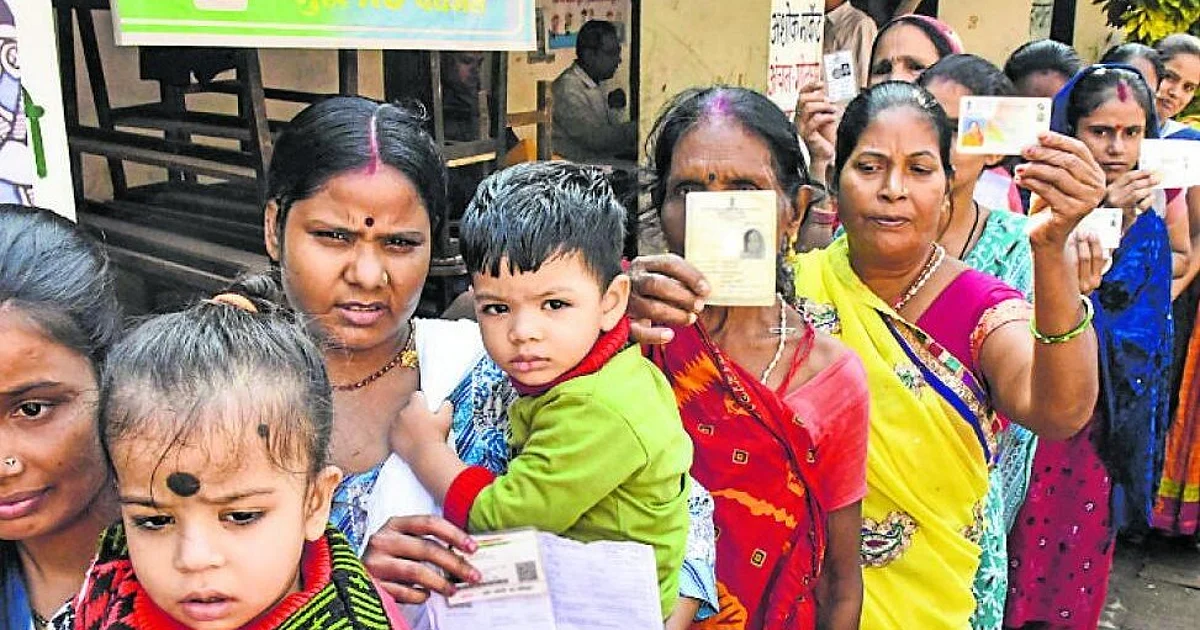Business
Bihar Elections Reveal Populism’s Fiscal Illusions and Risks

The political landscape in Bihar is undergoing significant scrutiny as the state prepares for its upcoming Assembly elections. Manifestos from competing parties have transformed from thoughtful socio-economic visions into transactional lists of populist promises. This shift raises critical questions about the sustainability of such financial commitments and their broader implications for governance.
The Mahagathbandhan, a coalition of opposition parties, has proposed a substantial expansion of government programs, including a commitment to providing one government job per family and direct cash transfers of ₹30,000 to women. In contrast, the ruling National Democratic Alliance (NDA) advocates for a model of capital-led growth, promising the creation of one crore jobs through ₹1 lakh crore in private investment. Both parties, however, have peppered their manifestos with cash handouts, raising concerns about the fiscal viability of these proposals.
Bihar’s economic context complicates this competitive populism. The state generates only 5.6% of its Gross State Domestic Product (GSDP) from its own tax revenue, one of the lowest rates in India. Alarmingly, nearly 42% of the state’s budget is already allocated to ‘committed expenditure,’ which includes salaries, pensions, and interest payments. This financial strain suggests that any new promises may be built on a shaky foundation.
In the realm of political promises, recent history provides cautionary tales. The state of Karnataka, for instance, introduced its own populist “five guarantees” in 2023, a move that resulted in significant fiscal challenges. According to a 2025 report from the Comptroller and Auditor General (CAG), Karnataka transitioned from a revenue surplus state to one with a revenue deficit of ₹9,271 crore within a year. The overall fiscal deficit ballooned to ₹65,522 crore, and as the CAG report noted, capital expenditures were slashed by ₹5,229 crore, leading to a 68% increase in unfinished infrastructure projects.
Data from the NITI Aayog’s 2025 Fiscal Health Index (FHI) illustrates this decline further, showing Karnataka’s fall from third to tenth place in fiscal health rankings. This trend of unsustainable fiscal policy is not confined to Karnataka; other states like Punjab and Andhra Pradesh are also experiencing severe economic consequences due to similar populist strategies.
Punjab’s FHI score of just 10.7 highlights its escalating debt, which has led to crippling interest payments that stifle productive spending. Meanwhile, Andhra Pradesh has witnessed an 84% reduction in social capital expenditure, redirecting funds to revenue-side giveaways without a clear economic roadmap.
Despite these challenges, not all states are following this path of fiscal recklessness. Odisha, often perceived negatively due to its economic status, has demonstrated strong fiscal health with an FHI score of 67.8, prioritizing capital spending and prudent debt management. Uttar Pradesh, with significant developmental needs, has managed to maintain capital expenditures nearly double the national average.
The impact of populist manifestos extends beyond mere economics; it raises ethical questions about accountability. The National Institute of Public Finance and Policy (NIPFP) found that every rupee spent on capital expenditure generates ₹2.45 in economic growth, while every rupee allocated to transfer payments yields only ₹0.98, resulting in a net economic loss. This evidence suggests that populist policies may actually hinder sustainable growth.
In light of these economic realities, the question arises: who ultimately pays for these promises? The burden often falls on future generations, as current subsidies may translate into increased taxes for citizens down the line. Voters may find themselves supporting short-term benefits while inadvertently funding an unsustainable fiscal model.
This situation is not merely a fiscal issue but a moral one, as politicians continue to make extravagant promises without the intention or ability to fund them adequately. Previous legal frameworks, such as the Supreme Court’s 2013 ruling on “irrational freebies,” have allowed such practices to persist without accountability.
A proposed shift towards a “Development Deficit Grant” could provide a solution by linking federal transfers to fiscal prudence and capital expenditure targets. Such a model would encourage states to prioritize responsible financial management.
As Bihar stands on the brink of a significant electoral decision, the implications of its political choices echo throughout the nation. The current crisis reflects a disintegration of the social contract, where promises made today may become liabilities for future generations. The true reckoning may come when voters recognize the costs of their choices, assessing whether they have been misled by an illusion of welfare.
-

 World5 months ago
World5 months agoSBI Announces QIP Floor Price at ₹811.05 Per Share
-

 Lifestyle5 months ago
Lifestyle5 months agoCept Unveils ₹3.1 Crore Urban Mobility Plan for Sustainable Growth
-

 Science4 months ago
Science4 months agoNew Blood Group Discovered in South Indian Woman at Rotary Centre
-

 World5 months ago
World5 months agoTorrential Rains Cause Flash Flooding in New York and New Jersey
-

 Top Stories5 months ago
Top Stories5 months agoKonkani Cultural Organisation to Host Pearl Jubilee in Abu Dhabi
-

 Sports4 months ago
Sports4 months agoBroad Advocates for Bowling Change Ahead of Final Test Against India
-

 Science5 months ago
Science5 months agoNothing Headphone 1 Review: A Bold Contender in Audio Design
-

 Top Stories5 months ago
Top Stories5 months agoAir India Crash Investigation Highlights Boeing Fuel Switch Concerns
-

 Business5 months ago
Business5 months agoIndian Stock Market Rebounds: Sensex and Nifty Rise After Four-Day Decline
-

 Sports4 months ago
Sports4 months agoCristian Totti Retires at 19: Pressure of Fame Takes Toll
-

 Politics5 months ago
Politics5 months agoAbandoned Doberman Finds New Home After Journey to Prague
-

 Top Stories5 months ago
Top Stories5 months agoPatna Bank Manager Abhishek Varun Found Dead in Well









